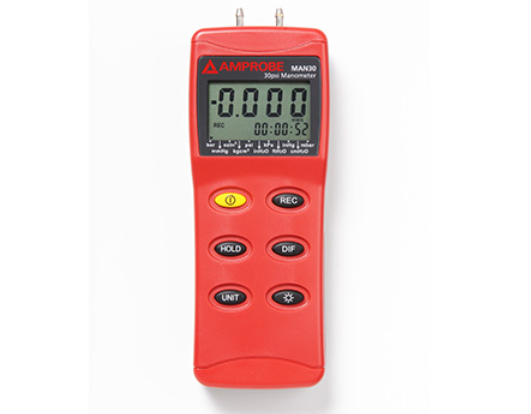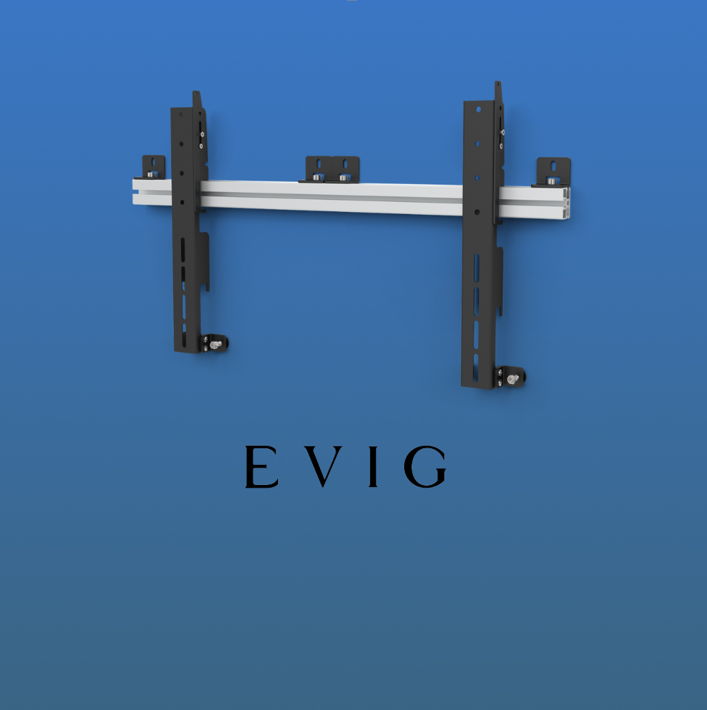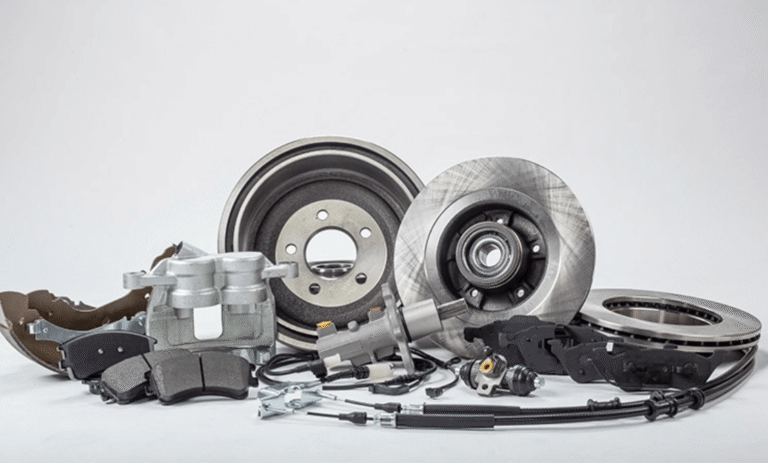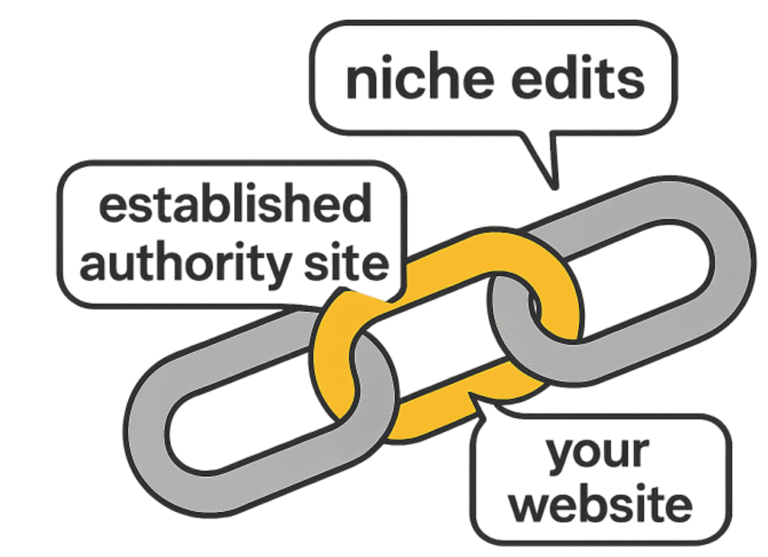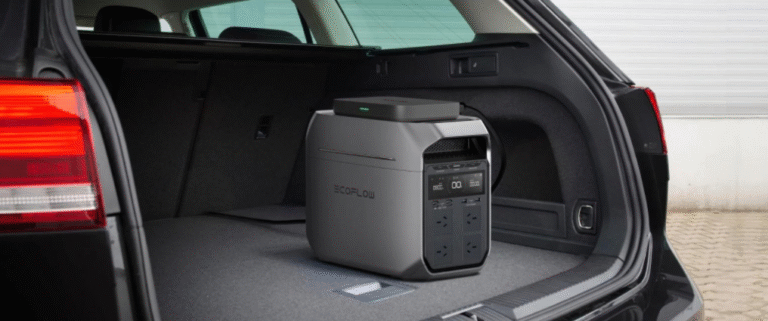Where Can I Buy High-Quality Differential Pressure Manometers?
Introduction to Differential Pressure Manometers
Finding the right source for high-quality differential pressure manometers requires careful consideration of multiple factors that extend far beyond simple price comparisons. These precision instruments play critical roles in various industrial applications, from HVAC systems and clean room monitoring to pharmaceutical manufacturing and aerospace testing. The accuracy, reliability, and longevity of your differential pressure measurements depend heavily on selecting not just the right instrument, but also the right supplier who can provide ongoing support and calibration services.
The market for differential pressure manometer has evolved significantly over the past decade, with traditional brick-and-mortar suppliers now competing alongside sophisticated online platforms and direct manufacturer sales channels. This transformation has created both opportunities and challenges for procurement professionals and engineers seeking to source these specialized instruments. Understanding the landscape of available purchasing channels, along with their respective advantages and limitations, becomes essential for making informed decisions that balance cost, quality, and long-term operational requirements.
Modern differential pressure manometers incorporate advanced technologies including digital displays, wireless connectivity, and sophisticated sensor configurations that demand higher levels of technical support and calibration expertise than their analog predecessors. This technological advancement has influenced the supplier ecosystem, creating distinctions between vendors who merely distribute products and those who provide comprehensive technical solutions. The choice of supplier often determines not just the initial purchase experience, but the entire lifecycle support for your measurement infrastructure.
Understanding Quality Standards
Quality in differential pressure manometers encompasses multiple dimensions that directly impact measurement accuracy, operational reliability, and long-term cost of ownership. International standards such as ISO 17025 for calibration laboratories and NIST traceability requirements establish baseline quality expectations that reputable suppliers must meet. However, these standards represent minimum requirements rather than indicators of exceptional quality, making it essential to understand what distinguishes superior suppliers from merely compliant ones.
Manufacturing quality begins with the selection of materials and components used in sensor construction. High-grade stainless steel diaphragms, precision-machined housings, and temperature-compensated electronics contribute to measurement stability and longevity. Suppliers who maintain close relationships with manufacturers often provide detailed specifications about construction materials and manufacturing processes, enabling informed comparisons between different options. The best suppliers also maintain comprehensive documentation about quality control procedures used during manufacturing and final testing.
Calibration quality represents another critical dimension that varies significantly among suppliers. While many vendors offer basic calibration certificates, premium suppliers provide multi-point calibrations across the full operating range, temperature compensation data, and long-term stability documentation. Some suppliers maintain their own ISO 17025 accredited calibration laboratories, enabling them to provide ongoing calibration services with full traceability documentation. This capability becomes particularly valuable for applications requiring regular recalibration or validation of measurement accuracy.
Environmental testing and qualification procedures distinguish high-quality suppliers from commodity vendors. Premium differential pressure manometers undergo extensive testing for temperature cycling, vibration resistance, electromagnetic compatibility, and long-term stability under various operating conditions. Suppliers who provide comprehensive environmental testing data demonstrate their commitment to quality and enable customers to make informed decisions about suitability for specific applications.
See also: Financial Forecasting Techniques 3894843100
Professional Industrial Suppliers
Established industrial suppliers represent the traditional backbone of differential pressure manometer procurement, offering comprehensive product knowledge, technical support, and established relationships with leading manufacturers. Companies such as Grainger, McMaster-Carr, and MSC Industrial Supply maintain extensive catalogs of precision instruments while providing the infrastructure necessary for large-scale procurement operations. These suppliers excel in serving customers who require reliable delivery schedules, comprehensive documentation, and standardized purchasing procedures that integrate with existing procurement systems.
The primary advantage of working with established industrial suppliers lies in their ability to provide consistent availability and standardized service levels across diverse product categories. Their purchasing power often enables competitive pricing on volume orders, while their established logistics networks ensure reliable delivery schedules. Many of these suppliers maintain technical support teams with expertise spanning multiple instrument categories, providing valuable assistance in product selection and application guidance.
However, the breadth of product categories handled by general industrial suppliers can sometimes limit their depth of expertise in specialized areas such as differential pressure measurement. While their technical support teams possess broad knowledge, they may lack the specialized understanding required for complex applications or custom configurations. Additionally, their focus on standardized products and procedures may not accommodate unique requirements or specialized calibration needs that some applications demand.
Regional industrial suppliers often provide more personalized service and deeper local market knowledge than national chains, making them particularly valuable for customers requiring ongoing technical support or custom solutions. These suppliers frequently maintain closer relationships with local calibration laboratories and service providers, enabling more responsive support for maintenance and recalibration requirements. Their smaller scale operations often translate into greater flexibility for handling special orders or non-standard configurations.
Online Marketplaces and E-commerce Platforms
The digital transformation of industrial procurement has created sophisticated online platforms that combine extensive product catalogs with advanced search and comparison capabilities. Amazon Business, eBay Industrial, and specialized platforms like GlobalTestSupply.com provide access to thousands of differential pressure manometers from multiple manufacturers and suppliers. These platforms excel in providing comprehensive product information, customer reviews, and competitive pricing transparency that enables informed decision-making.
Advanced filtering and comparison tools available on modern e-commerce platforms enable efficient identification of products meeting specific technical requirements. Sophisticated search algorithms can locate instruments based on pressure ranges, accuracy specifications, output signals, and environmental ratings. Customer review systems provide valuable insights into real-world performance and reliability that complement manufacturer specifications. Integration with procurement systems streamlines the purchasing process for organizations with established e-commerce workflows.
The global reach of online marketplaces provides access to suppliers and products that might not be available through traditional distribution channels. This expanded access can be particularly valuable for sourcing specialized instruments or finding competitive pricing on standard products. International suppliers often offer competitive pricing due to lower overhead costs or favorable exchange rates, though this must be balanced against potential challenges with warranty support and technical assistance.
Quality verification becomes more challenging when purchasing through online marketplaces, particularly when dealing with unfamiliar suppliers or products. The absence of face-to-face interaction eliminates opportunities for detailed technical discussions and limits the ability to assess supplier expertise and reliability. Customers must rely heavily on product specifications, customer reviews, and supplier ratings to make informed decisions. Return policies and warranty terms require careful evaluation to ensure adequate protection against defective or unsuitable products.
Specialized Scientific Equipment Dealers
Scientific equipment dealers focus specifically on precision instruments and measurement devices, providing deeper technical expertise and more comprehensive support services than general industrial suppliers. Companies such as Cole-Parmer, VWR International, and Fisher Scientific maintain specialized knowledge about differential pressure measurement applications while offering products from multiple manufacturers. These dealers often provide valuable services including application consulting, custom configurations, and specialized calibration services.
The technical expertise available from scientific equipment dealers represents their primary competitive advantage. Their sales and support teams typically possess engineering backgrounds and extensive experience with precision measurement applications. This expertise enables them to provide valuable guidance on product selection, application requirements, and system integration considerations. Many scientific dealers also maintain applications laboratories where customers can evaluate products under controlled conditions before making purchase decisions.
Calibration and validation services offered by scientific equipment dealers often exceed those available from general suppliers. Many maintain ISO 17025 accredited calibration laboratories capable of providing traceable calibrations with detailed uncertainty analysis. Some dealers also offer on-site calibration services and validation protocols specifically designed for regulated industries such as pharmaceuticals and biotechnology. These services can significantly reduce the total cost of ownership while ensuring compliance with quality standards.
Product customization capabilities distinguish premium scientific equipment dealers from commodity suppliers. Many offer services such as custom pressure fittings, specialized mounting configurations, and integration with data acquisition systems. These capabilities enable customers to obtain instruments optimized for specific applications rather than settling for standard configurations that may not meet all requirements. Custom documentation packages can also be developed to support validation requirements in regulated environments.
Direct from Manufacturers
Purchasing directly from manufacturers can provide access to the latest products, custom configurations, and comprehensive technical support while potentially offering competitive pricing for volume purchases. Leading manufacturers such as Honeywell, Rosemount, and Dwyer Instruments maintain sales organizations capable of supporting direct customer relationships. This approach works particularly well for customers with ongoing requirements, specialized applications, or volume purchasing needs.
Technical support available directly from manufacturers typically exceeds that provided by distributors or dealers. Manufacturer technical teams possess intimate knowledge of product design, capabilities, and limitations that enables them to provide detailed application guidance and troubleshooting assistance. Access to applications engineers and product development teams can be invaluable for complex applications or custom requirements. Many manufacturers also provide training programs and certification courses that enhance customer expertise.
Product customization options are most extensive when working directly with manufacturers. Custom pressure ranges, specialized materials, unique mounting configurations, and integrated communication capabilities can often be accommodated through direct relationships. Manufacturers may also provide access to products or configurations not available through standard distribution channels. Early access to new products and technologies represents another advantage of direct manufacturer relationships.
Volume pricing advantages often make direct manufacturer relationships attractive for large-scale procurement or ongoing supply agreements. Manufacturers can provide competitive pricing structures for customers committing to significant volumes or long-term contracts. Payment terms and delivery schedules can also be negotiated to better match customer requirements. However, minimum order quantities and longer lead times may make direct manufacturer relationships impractical for small-quantity or urgent requirements.
Local Distributor Networks
Local distributors provide valuable benefits including personalized service, rapid response times, and intimate knowledge of regional market conditions and requirements. These distributors often maintain inventory of commonly requested products while providing access to broader product lines through established manufacturer relationships. Their proximity enables face-to-face consultation, on-site demonstrations, and rapid response to urgent requirements.
Regional expertise represents a significant advantage of local distributors, particularly in markets with unique environmental conditions, regulatory requirements, or application preferences. Local distributors understand regional calibration laboratories, service providers, and technical support resources that can be valuable throughout the product lifecycle. Their established relationships with local customers often provide access to application experience and performance feedback that assists in product selection decisions.
Inventory management and logistics advantages of local distributors can significantly reduce lead times and ensure product availability for urgent requirements. Many local distributors maintain safety stock of commonly requested items while providing expedited ordering for special requirements. Their proximity enables flexible delivery arrangements and reduces transportation costs compared to distant suppliers. Emergency support and replacement capabilities can be crucial for critical applications where downtime must be minimized.
The personalized service provided by local distributors often includes comprehensive support services such as installation assistance, training, and ongoing technical support. Their smaller scale operations typically enable more flexible and responsive service compared to large national suppliers. Long-term relationships with local distributors can result in preferential treatment, customized service agreements, and priority access to limited availability products.
Second-hand and Refurbished Options
The market for used and refurbished differential pressure manometers provides cost-effective alternatives for budget-conscious buyers, though quality verification becomes critically important when pursuing these options. Specialized dealers such as eBay refurbished programs, TestEquipmentDepot.com, and various surplus equipment dealers offer previously owned instruments at substantial discounts compared to new equipment prices. These options can be particularly attractive for non-critical applications, backup requirements, or situations where budget constraints limit new equipment purchases.
Quality verification procedures become essential when considering used or refurbished instruments. Reputable refurbishment operations provide comprehensive testing, calibration, and documentation that approaches new equipment standards. However, the lack of standardized refurbishment procedures across the industry means that quality levels can vary dramatically between suppliers. Customers must carefully evaluate supplier credentials, refurbishment procedures, and warranty terms to ensure adequate quality and reliability.
Calibration history and traceability documentation provide valuable insights into the previous use and care of used instruments. Well-maintained instruments with complete calibration records often represent excellent value, while instruments with gaps in calibration history may require extensive evaluation to determine their suitability. Some refurbishment specialists maintain comprehensive records about instrument history and performance that enable informed purchasing decisions.
Warranty and support limitations represent significant considerations when purchasing used or refurbished equipment. While reputable refurbishers provide warranties on their work, these typically do not match the comprehensive coverage provided with new instruments. Technical support may also be limited, particularly for older instruments that may no longer be supported by original manufacturers. Spare parts availability can become problematic for discontinued models or instruments nearing end-of-life status.
International Procurement Considerations
Global sourcing of differential pressure manometers can provide access to competitive pricing and specialized products not available in domestic markets. European manufacturers such as WIKA and Endress+Hauser offer high-quality instruments that may provide superior value compared to domestic alternatives. Asian suppliers increasingly offer competitive products with improving quality standards, though careful supplier evaluation remains essential. International procurement requires consideration of additional factors including import duties, extended delivery times, and potential challenges with warranty support and technical assistance.
Currency fluctuations and international payment terms add complexity to global procurement decisions. Exchange rate variations can significantly impact total project costs, particularly for large orders or long-term supply agreements. Payment methods and terms may differ from domestic practices, requiring evaluation of credit terms, payment security, and dispute resolution procedures. Letters of credit or other secure payment mechanisms may be necessary when dealing with unfamiliar international suppliers.
Regulatory compliance and certification requirements vary between countries and may affect product suitability for specific applications. European CE marking, Canadian CSA certification, and other regional approvals may be required depending on application requirements and local regulations. Import documentation, customs procedures, and potential delays at border crossings must be factored into delivery schedules and procurement planning.
Technical support and warranty service can be challenging with international suppliers, particularly for complex instruments requiring specialized expertise. Time zone differences may limit availability of technical support when needed urgently. Warranty repair or replacement procedures may involve extended shipping times and customs procedures that significantly extend downtime periods. Some international manufacturers maintain domestic service networks that mitigate these concerns, though verification of service capabilities remains important.
Price Comparison Strategies
Effective price comparison for differential pressure manometers requires consideration of total cost of ownership rather than simple purchase price comparison. Initial instrument cost represents only one component of lifetime costs, with calibration services, maintenance requirements, and replacement parts contributing significantly to total ownership expenses. Suppliers offering competitive initial pricing may have higher service costs or limited support capabilities that increase long-term expenses.
Volume pricing structures vary significantly between suppliers and can substantially impact total project costs for multiple instrument purchases. Many suppliers offer quantity discounts that become significant for orders exceeding certain thresholds. Long-term supply agreements may provide additional pricing advantages while ensuring product availability and consistent service levels. However, minimum commitment requirements must be balanced against actual needs and budget constraints.
Service and support costs should be evaluated alongside initial purchase prices to determine true value propositions. Some suppliers include calibration services, technical support, and warranty coverage in their pricing while others charge separately for these services. Extended warranty options may provide cost-effective protection against unexpected repair expenses while ensuring continued operation of critical instruments. Training and consulting services may add value that justifies higher initial costs through improved application effectiveness and reduced operational problems.
Hidden costs such as shipping, insurance, customs duties, and installation requirements can significantly impact total project expenses. International suppliers may offer attractive base pricing that becomes less competitive when all additional costs are included. Express shipping charges for urgent requirements can substantially increase costs compared to standard delivery options. Installation and commissioning services may be necessary for complex applications, adding to total project expenses.
Quality Verification Methods
Establishing supplier quality credentials requires evaluation of multiple factors including manufacturer certifications, calibration capabilities, and customer references. ISO 9001 quality management certification provides baseline assurance of systematic quality procedures, while ISO 17025 accreditation demonstrates competency in calibration and testing services. Industry-specific certifications such as FDA registration for pharmaceutical applications or aerospace approvals provide additional quality verification for specialized markets.
Product documentation quality reflects supplier commitment to quality and customer support. Comprehensive specification sheets, calibration certificates, and operating manuals demonstrate attention to detail and customer service orientation. Traceability documentation linking calibrations to national standards provides assurance of measurement accuracy and compliance with quality requirements. Environmental testing data and reliability specifications enable informed evaluation of product suitability for specific applications.
Customer references and testimonials provide valuable insights into supplier performance and product quality from users with similar applications and requirements. Long-established suppliers often have extensive customer bases willing to provide references about product performance and supplier support capabilities. Industry forums and professional associations can provide additional sources of supplier and product evaluations from experienced users.
Sample evaluation and demonstration programs offered by quality suppliers enable customers to verify product performance before making purchase commitments. Many suppliers provide evaluation units for temporary use in actual applications, allowing assessment of measurement accuracy, stability, and compatibility with existing systems. Demonstration programs may include on-site visits by technical specialists who can provide application guidance and performance verification.
After-sales Support and Warranty
Comprehensive after-sales support distinguishes premium suppliers from commodity vendors and significantly impacts long-term satisfaction and total cost of ownership. Technical support availability, calibration services, repair capabilities, and spare parts availability all contribute to the overall value proposition. Suppliers with strong after-sales capabilities enable customers to maximize instrument performance and reliability while minimizing operational disruptions.
Warranty terms and coverage vary significantly between suppliers and can substantially impact risk and long-term costs. Standard warranty periods typically range from one to three years, though extended warranty options may be available for additional cost. Warranty coverage scope varies from basic defects to comprehensive performance guarantees including accuracy specifications. International warranties may have different terms and service procedures that affect their practical value.
Calibration services represent a critical component of ongoing support for precision instruments. Suppliers with ISO 17025 accredited calibration capabilities provide traceable calibrations that meet quality system requirements. On-site calibration services can minimize downtime and transportation risks while ensuring continued operation of critical systems. Calibration scheduling and reminder services help ensure compliance with regular calibration requirements.
Repair and replacement services minimize downtime when instrument problems occur. Suppliers with comprehensive repair capabilities can restore instruments to original specifications while maintaining calibration traceability. Expedited repair services may be available for critical applications requiring rapid turnaround. Replacement unit loan programs can eliminate downtime during repair periods, though availability may be limited for specialized instruments.
Industry-specific Procurement Channels
Different industries have developed specialized procurement channels that address unique requirements for quality, documentation, and regulatory compliance. Pharmaceutical and biotechnology industries often require suppliers with FDA registration, validated manufacturing processes, and comprehensive documentation packages supporting validation activities. These specialized channels provide products and services specifically designed to meet stringent regulatory requirements while ensuring product quality and reliability.
Aerospace and defense applications require suppliers with appropriate security clearances, AS9100 quality certifications, and experience with military specifications and standards. Specialized suppliers serving these markets understand unique requirements for environmental qualifications, documentation requirements, and quality assurance procedures. Their products often incorporate ruggedized designs and enhanced reliability features necessary for demanding applications.
Clean room and semiconductor manufacturing applications require suppliers experienced with contamination control requirements, ultra-high purity materials, and specialized installation procedures. These suppliers provide instruments designed specifically for clean room environments with appropriate materials, surface finishes, and contamination control features. Their technical support teams understand clean room protocols and can provide guidance on installation and maintenance procedures that maintain environmental integrity.
HVAC and building automation markets have developed specialized distribution channels focused on building systems integration and energy efficiency applications. These suppliers understand building codes, energy efficiency standards, and system integration requirements specific to building applications. Their products often incorporate communication capabilities and software integration features designed for building management systems.
Frequently Asked Questions
What is the typical accuracy range for high-quality differential pressure manometers?
High-quality differential pressure manometers typically offer accuracy specifications ranging from ±0.25% to ±0.05% of full scale, depending on the technology and price point. Digital instruments with advanced sensor technology generally provide superior accuracy compared to analog devices. The best laboratory-grade instruments can achieve accuracies of ±0.02% or better with proper calibration and environmental control.
How often should differential pressure manometers be calibrated?
Calibration frequency depends on application criticality, environmental conditions, and quality system requirements. Most manufacturers recommend annual calibration for general industrial applications, though critical measurements may require quarterly or even monthly verification. Regulatory requirements in pharmaceuticals, aerospace, and other controlled industries may mandate specific calibration intervals that must be followed regardless of manufacturer recommendations.
What are the most important factors to consider when selecting a supplier?
Key supplier selection factors include technical expertise, after-sales support capabilities, calibration services, product availability, and total cost of ownership. The supplier’s ability to provide ongoing technical support and calibration services often proves more valuable than initial price advantages. Quality certifications, customer references, and industry experience should also be evaluated carefully.
Can I purchase differential pressure manometers internationally and still receive adequate support?
International purchasing can be successful with careful supplier selection and verification of local support capabilities. Some international manufacturers maintain domestic service networks that provide local support, while others may require shipping instruments back to their home country for service. It’s essential to verify warranty terms, technical support availability, and repair procedures before making international purchases.
What documentation should I expect to receive with a high-quality instrument?
Quality suppliers provide comprehensive documentation including detailed specifications, calibration certificates with traceability information, operating manuals, and warranty terms. For regulated applications, additional documentation such as material certifications, environmental testing data, and validation support packages may be available. The quality and completeness of documentation often reflects the supplier’s overall commitment to quality and customer support.
Are refurbished differential pressure manometers a good value?
Refurbished instruments can provide excellent value when purchased from reputable suppliers who perform comprehensive refurbishment and testing procedures. Quality refurbishers provide calibration certificates, limited warranties, and detailed information about the refurbishment process. However, careful evaluation of the supplier’s credentials and refurbishment procedures is essential to ensure adequate quality and reliability.
What should I do if my differential pressure manometer fails during the warranty period?
Contact the supplier immediately to initiate warranty procedures and minimize downtime. Most reputable suppliers provide expedited warranty service including repair or replacement options. Document the failure symptoms and operating conditions to assist with diagnosis and prevention of future problems. Some suppliers provide loaner units during warranty repair periods to minimize operational disruption.
How can I verify the quality and accuracy of a differential pressure manometer before purchase?
Request detailed specifications, calibration data, and environmental testing information from potential suppliers. Many quality suppliers offer demonstration programs or evaluation units that allow testing under actual operating conditions. Customer references and industry forums can provide additional insights into product performance and supplier reliability. Professional evaluation by qualified technicians may be warranted for critical applications.For more Any Business Card, check out this guide from NFC Business Card Temperature corrections for measuring equipment become particularly important during extreme weather conditions.
The procurement of high-quality differential pressure manometers requires careful consideration of multiple factors extending well beyond simple price comparisons. Success depends on identifying suppliers who combine quality products with comprehensive support services while meeting specific application requirements. Whether purchasing from established industrial suppliers, specialized scientific equipment dealers, or directly from manufacturers, the key lies in evaluating total value propositions rather than focusing solely on initial purchase prices. The investment in quality instruments and suppliers pays dividends through improved measurement reliability, reduced maintenance costs, and enhanced operational efficiency over the instrument lifecycle.
